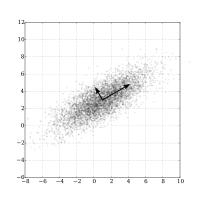
SuRF: A new method for sparse variable selection, with application in microbiome data analysis.
Sign Up to like & getrecommendations! Published in 2020 at "Statistics in medicine"
DOI: 10.1002/sim.8809
Abstract: In this article, we present a new variable selection method for regression and classification purposes, particularly for microbiome analysis. Our method, called subsampling ranking forward selection (SuRF), is based on LASSO penalized regression, subsampling and… read more here.
Keywords: analysis; method; selection; variable selection ... See more keywords

Processing and Analyzing Human Microbiome Data.
Sign Up to like & getrecommendations! Published in 2017 at "Methods in molecular biology"
DOI: 10.1007/978-1-4939-7274-6_31
Abstract: The human microbiome is associated with complex disorders such as diabetes, cancer, obesity and cardiovascular disorders. Recent technological developments have allowed researchers to fully quantify the composition of the microbiome using culture-independent approaches, resulting in… read more here.
Keywords: processing analyzing; human microbiome; microbiome; analyzing human ... See more keywords

Fast and flexible analysis of linked microbiome data with mako.
Sign Up to like & getrecommendations! Published in 2021 at "Nature methods"
DOI: 10.1038/s41592-021-01335-9
Abstract: Mako is a software tool that converts microbiome data and networks into a graph database and visualizes query results, thus allowing users without programming knowledge to carry out network-based queries. Mako is accompanied by a… read more here.
Keywords: fast flexible; flexible analysis; microbiome data; data mako ... See more keywords

A novel deep learning method for predictive modeling of microbiome data
Sign Up to like & getrecommendations! Published in 2021 at "Briefings in bioinformatics"
DOI: 10.1093/bib/bbaa073
Abstract: With the development and decreasing cost of next-generation sequencing technologies, the study of the human microbiome has become a rapid expanding research field, which provides an unprecedented opportunity in various clinical applications such as drug… read more here.
Keywords: microbiome data; phylogenetic tree; method; deep learning ... See more keywords

Principal microbial groups: compositional alternative to phylogenetic grouping of microbiome data
Sign Up to like & getrecommendations! Published in 2022 at "Briefings in bioinformatics"
DOI: 10.1093/bib/bbac328
Abstract: Statistical and machine learning techniques based on relative abundances have been used to predict health conditions and to identify microbial biomarkers. However, high dimensionality, sparsity and the compositional nature of microbiome data represent statistical challenges.… read more here.
Keywords: microbial groups; microbiome data; procedure; taxon grouping ... See more keywords

PLSDA-batch: a multivariate framework to correct for batch effects in microbiome data
Sign Up to like & getrecommendations! Published in 2023 at "Briefings in Bioinformatics"
DOI: 10.1093/bib/bbac622
Abstract: Abstract Microbial communities are highly dynamic and sensitive to changes in the environment. Thus, microbiome data are highly susceptible to batch effects, defined as sources of unwanted variation that are not related to and obscure… read more here.
Keywords: batch effects; microbiome data; variation; plsda batch ... See more keywords

A novel normalization and differential abundance test framework for microbiome data
Sign Up to like & getrecommendations! Published in 2020 at "Bioinformatics"
DOI: 10.1093/bioinformatics/btaa255
Abstract: MOTIVATION Microbial communities have been proved to have close relationship with many diseases. The identification of differentially abundant microbial species is clinically meaningful for finding disease-related pathogenic or probiotic bacteria. However, certain characteristics of microbiome… read more here.
Keywords: framework; abundance; size; microbiome data ... See more keywords

To rarefy or not to rarefy: robustness and efficiency trade-offs of rarefying microbiome data.
Sign Up to like & getrecommendations! Published in 2022 at "Bioinformatics"
DOI: 10.1093/bioinformatics/btac127
Abstract: MOTIVATION Microbiome datasets provide rich information about microbial communities. However, vast library size variations across samples present great challenges for proper statistical comparisons. To deal with these challenges, rarefaction is often used in practice as… read more here.
Keywords: microbiome data; rarefying microbiome; rarefy; efficiency ... See more keywords

GenBank as a source to monitor and analyze Host-Microbiome data
Sign Up to like & getrecommendations! Published in 2022 at "Bioinformatics"
DOI: 10.1093/bioinformatics/btac487
Abstract: MOTIVATION Microbiome datasets are often constrained by sequencing limitations. GenBank is the largest collection of publicly available DNA sequences, which is maintained by the National Center of Biotechnology Information (NCBI). The metadata of GenBank records… read more here.
Keywords: genbank; host microbiome; genbank source; microbiome data ... See more keywords

HONMF: integration analysis of multi-omics microbiome data via matrix factorization and hypergraph.
Sign Up to like & getrecommendations! Published in 2023 at "Bioinformatics"
DOI: 10.1093/bioinformatics/btad335
Abstract: Abstract Motivation The accumulation of multi-omics microbiome data provides an unprecedented opportunity to understand the diversity of bacterial, fungal, and viral components from different conditions. The changes in the composition of viruses, bacteria, and fungi… read more here.
Keywords: multi omics; microbiome data; omics microbiome; multi ... See more keywords

Batch effects correction for microbiome data with Dirichlet‐multinomial regression
Sign Up to like & getrecommendations! Published in 2019 at "Bioinformatics"
DOI: 10.1093/bioinformatics/bty729
Abstract: Motivation: Metagenomic sequencing techniques enable quantitative analyses of the microbiome. However, combining the microbial data from these experiments is challenging due to the variations between experiments. The existing methods for correcting batch effects do not… read more here.
Keywords: bdmma; multinomial regression; microbiome data; batch ... See more keywords